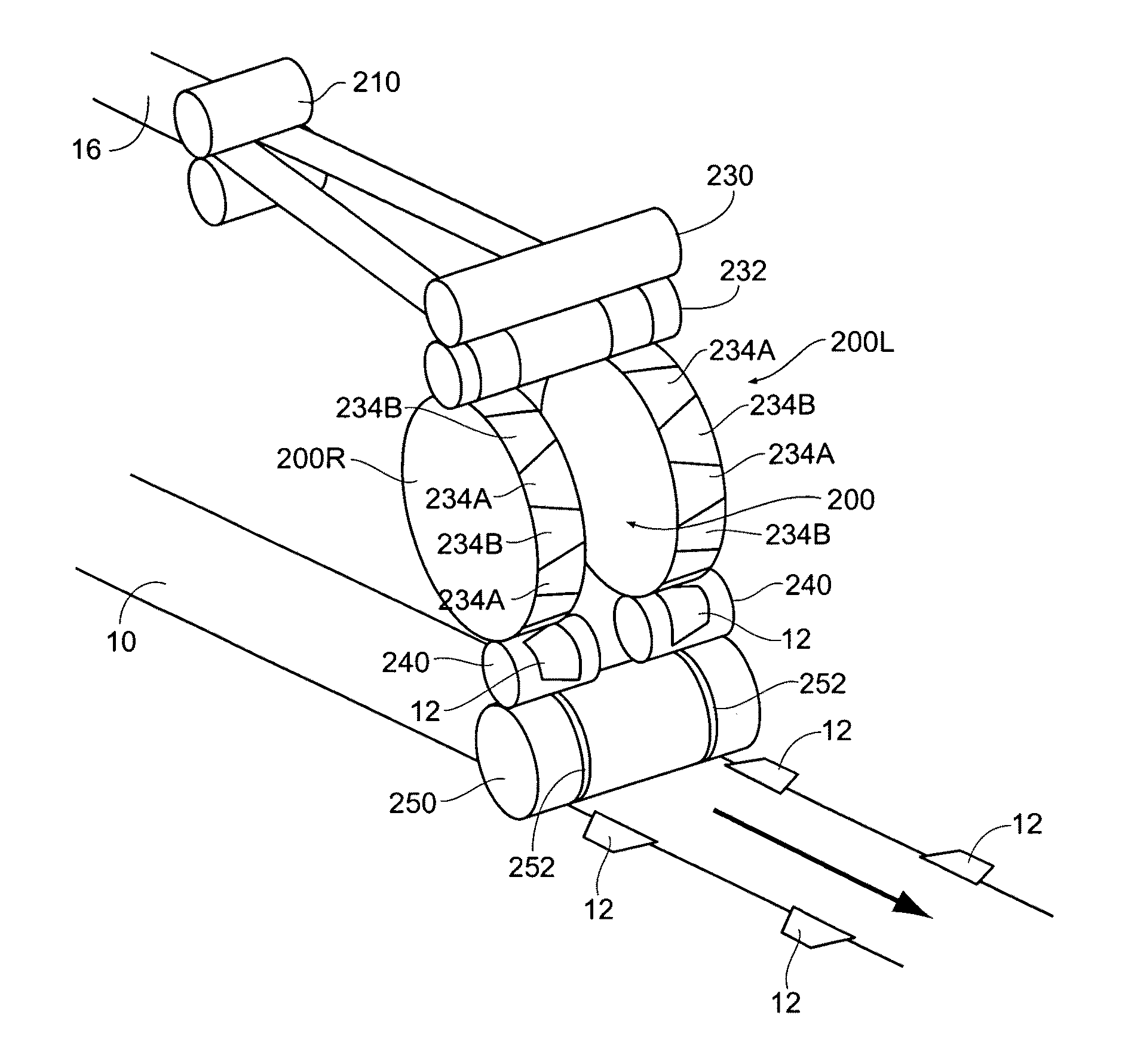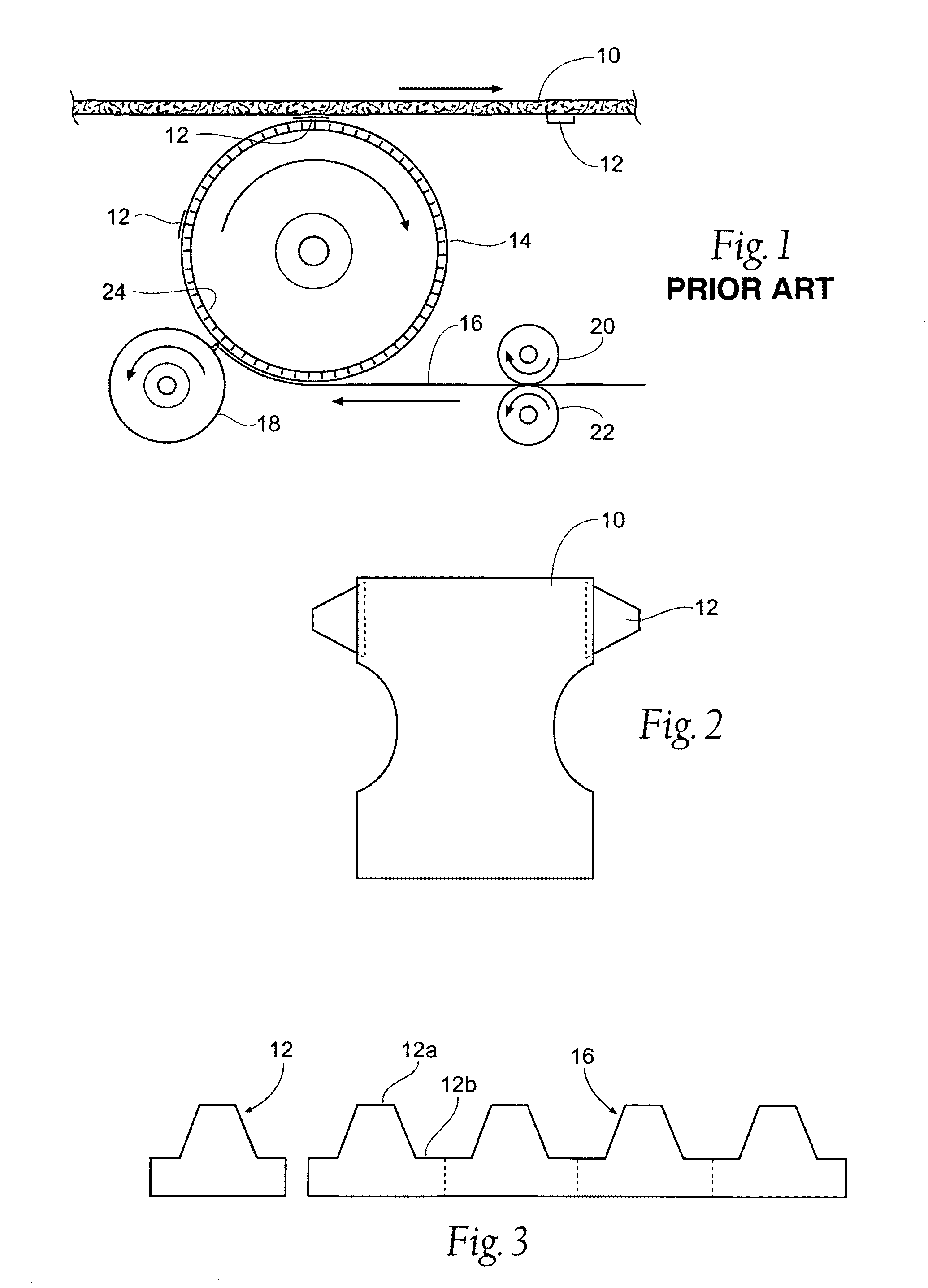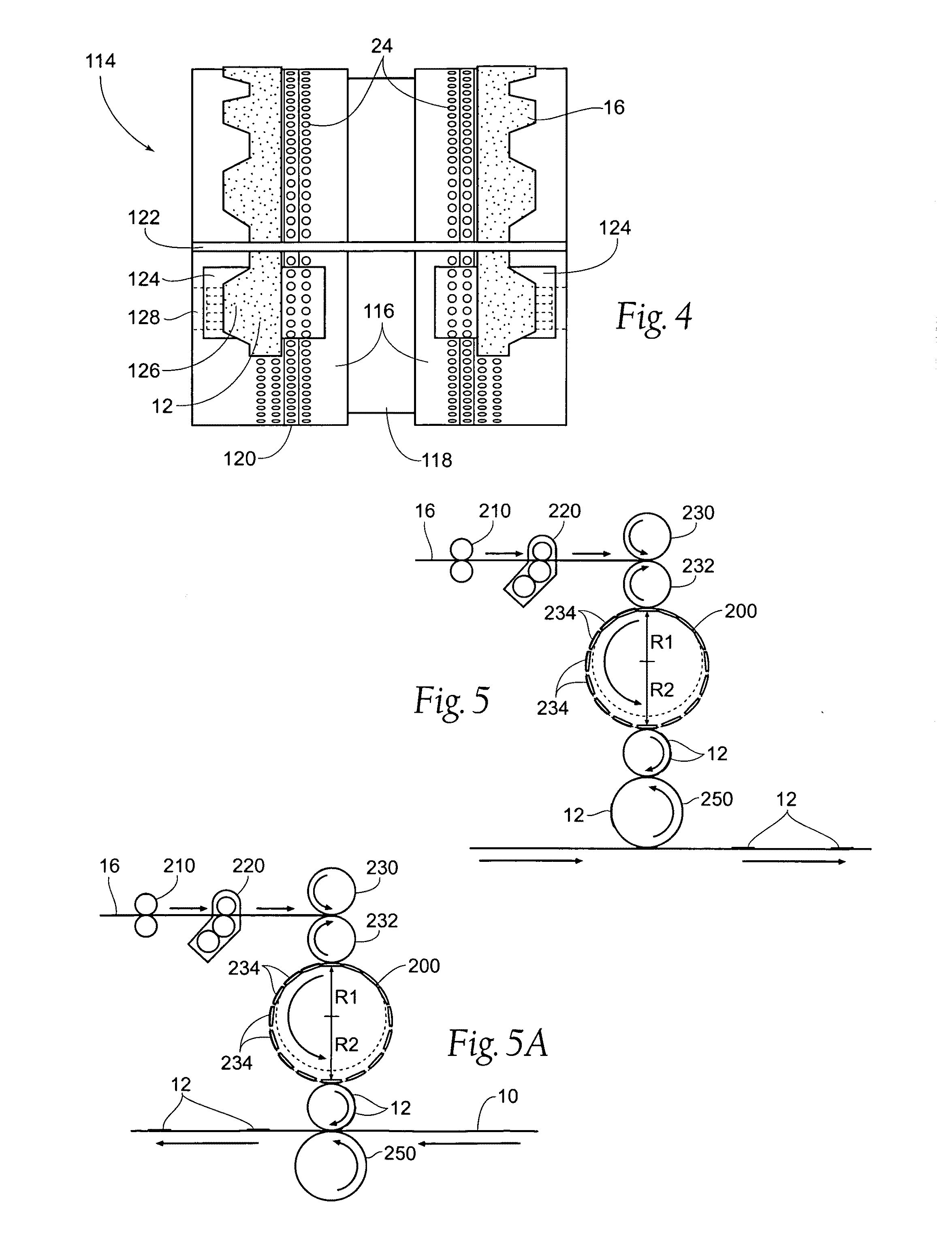Methods and apparatus for application of nested zero waste ear to traveling web
a technology of ear web and ear, applied in the field of disposable hygiene products, can solve the problems of inefficiency of scale, laborious act of harvesting recyclable materials from defective products, etc., and achieve the effect of zero or minimal waste in the incoming ear web
- Summary
- Abstract
- Description
- Claims
- Application Information
AI Technical Summary
Benefits of technology
Problems solved by technology
Method used
Image
Examples
Embodiment Construction
[0060]Although the disclosure hereof is detailed and exact to enable those skilled in the art to practice the invention, the physical embodiments herein disclosed merely exemplify the invention which may be embodied in other specific structures. While the preferred embodiment has been described, the details may be changed without departing from the invention.
[0061]Referring to the drawings there is seen in FIG. 1 a diagrammatic illustration of a prior art process for applying tabs to webs in a diaper making process, to result in an intermediate product shown in FIG. 2. The present invention can use this prior art method of affixing the segments 12 to the web 10, with a different anvil, the new anvil 114 described below. Web 10 is a composite material used in formation of diapers which is generally formed of various layers of material such as plastic back sheets, absorbent pads and nonwoven top sheets. A series of ears 12 are applied to web 10. In the illustrated process of FIG. 1, a...
PUM
 Login to View More
Login to View More Abstract
Description
Claims
Application Information
 Login to View More
Login to View More - R&D
- Intellectual Property
- Life Sciences
- Materials
- Tech Scout
- Unparalleled Data Quality
- Higher Quality Content
- 60% Fewer Hallucinations
Browse by: Latest US Patents, China's latest patents, Technical Efficacy Thesaurus, Application Domain, Technology Topic, Popular Technical Reports.
© 2025 PatSnap. All rights reserved.Legal|Privacy policy|Modern Slavery Act Transparency Statement|Sitemap|About US| Contact US: help@patsnap.com



